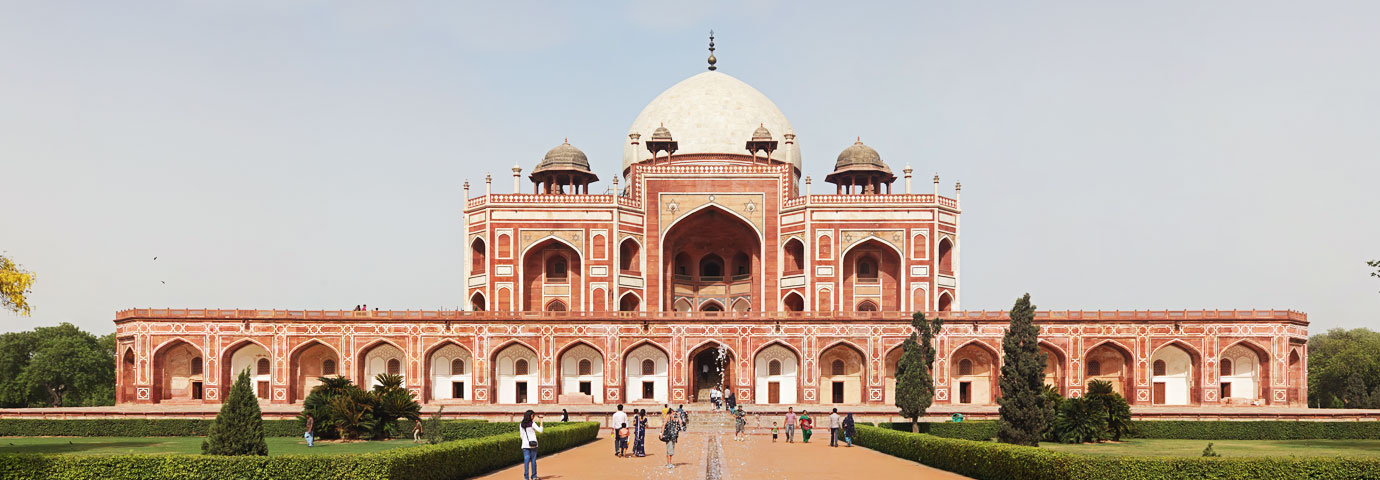
Humayun's Tomb is emblematic of the Mughal epoch of architectural grandeur. The tomb is now a World Heritage Site as declared by UNESCO in 1993. Situated in the bank of the Yamuna river, Humayun's tomb introduced the char bagh'garden style into the Mughal architecture. It has inspired many monuments built by later Mughals.
Humayun's tomb was built by Haji Begum - the widow of the second Mughal emperor – Humayun. Haji begumis believed to have supervised the entire construction by camping on the site grounds. Humayun's Tomb was built in 1570 by the Mughal architects of Herat - Sayyed Muhammad ibn Mirak Ghiyathuddinand his fathMirak Ghiyathuddin. The mausoleum has recorded some important events of Indian history. In 1857 Humayun's tomb acted as a refuge for the last Mughal ruler – Bahadur ShahII before he was imprisoned in Rangoon jail.
The tomb is embraced in the middle by a grid and gives the distinct impression of typical Mughal art. A two storied gate paves the way inside the garden tomb. The garden is divided into four areas which in turn are networked by water channels and narrow pathways. The creative vision of skillful artisans and engineers designed to give the tomb its enchanting beauty. The tomb area contains many other smaller tombs.
Humayun's tomb is approximately 5kms from Connaught place in Delhi. Tourists have the options of local buses, taxis and auto rickshaws to reach them at the tomb.
Get more information on other tourist attractions in Delhi while browsing our site and for online booking, please fill in the form given.
The premises of this fort because it was very well protected. No one should miss out on this one.
Subscribe Our Newsletter for get latest updates
Follow us: